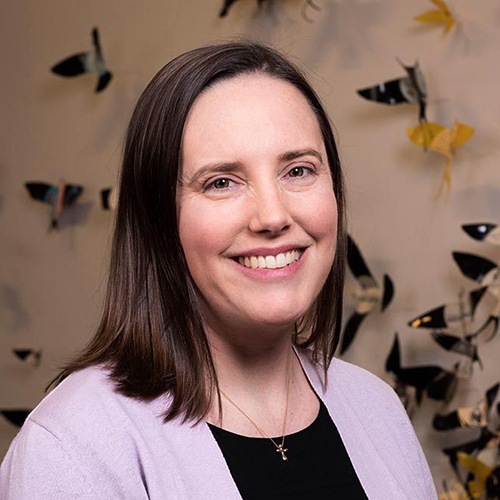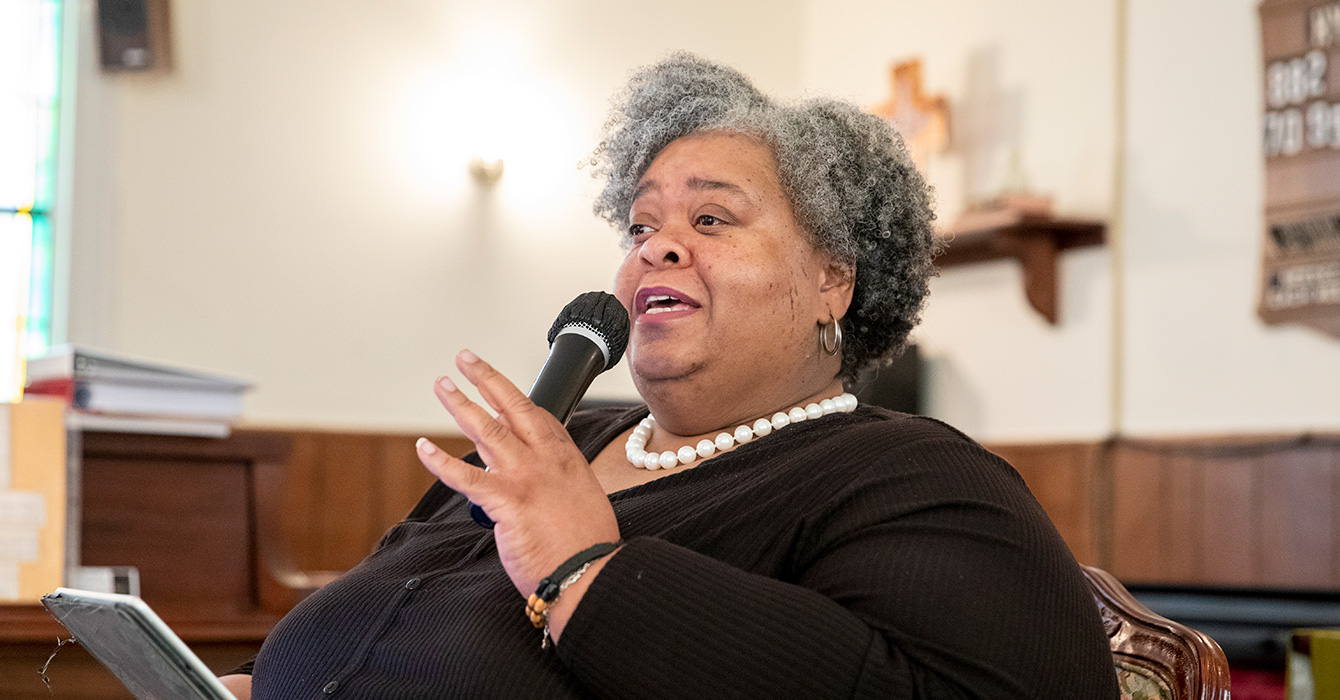For many years, I was afraid to fly.
This fear was especially intense as I settled into my airplane seat, convinced that I was about to die. It would last for the entire flight. As the adrenaline coursed through my body, I would tremble and sweat. My heart would race, and so would my thoughts.
My eyes would dart around, studying the plane, its passengers and its crew for signs that I was in imminent danger. Sometimes I would anticipate this terror weeks before a flight; it knotted my stomach, kept me awake at night and left me breathless.
I tried to control or at least mask my fear through deep breathing, visualization, distraction, therapy and medication. But fear, more powerful and more persistent than all my efforts, held me captive. I resigned myself to a lifetime of miserable flights or, maybe worse, missed adventures.
Fear, experience had taught me, was something I could only attempt to outlast or manage.
But a new experience, an experience of discernment, has me wondering how much less I might have suffered with a different approach.
For me, that has taken place in the Episcopal Church, where an official discernment process for ordination begins with the formation of a lay committee. This committee prays with a nominee, reviewing the nominee’s spiritual autobiography and raising questions to support the nominee’s journey to a more intimate relationship with God and a clearer sense of vocation.
Over the weeks of my parish discernment committee’s meetings over Zoom, I’d been intentional about pausing to breathe before answering each question. Even a moment is enough time for me to listen for God’s whisper, to gauge whether an answer I am tempted to give has originated with God or with me.
But recently, when a new question arose, the Holy Spirit breathed an answer and I blurted it out: “I’m afraid.”
Wait. I’m what?
I had not been consciously aware of fear’s presence in my discernment, and I reacted the way I had been trained: I resisted.
And it’s not just me. In a world where fear is ever-present, and weaponized by politicians to oppress, we are all taught to avoid it. How many times have you said to a child (or even another adult), “Don’t be afraid”? Indeed, how many times did Jesus or an angel say the same?
Mindfulness meditation has taught me this equation: pain x resistance = suffering. In other words, it is not the pain itself that paralyzes us but our desire and instinct to resist it, to control and outthink it. That sounds good, but it’s a real challenge to put into practice.
Discernment -- whether about vocation, parenting, real estate or any other realm of our lives -- naturally surfaces painful fears of many kinds: unworthiness, failure, risk, judgment, loneliness, insecurity, loss of control, the unknown.
So in the context of discernment, how might we rewrite the equation to honor fear’s presence? If we multiply fear with curiosity instead of resistance, might we generate wonder?
Wonder that Jesus sent the gift of the Holy Spirit at Pentecost as an advocate and comforter -- and a teacher? Wonder that we have marvelously made bodies that speak to us, that reveal our deepest needs and desires? Wonder that we can, as Mary Margaret Funk suggests in “Discernment Matters,” “learn to listen with the ear of our hearts”? Who are we to deny the wisdom that might be present in fear?
In “The Way of Discernment,” Elizabeth Liebert writes that “desires are the royal road to self-knowledge” -- and fears, if we develop healthy practices for observing and reflecting upon them, can reveal our desires, motivations and assumptions.
She also notes that God calls “despite [our] ‘negative’ feelings,” and so the work of discernment is not simply to “follow the ones that feel good.”
How might we tell the difference between negative feelings that have something to teach us and those that lead us away from God by limiting our imaginations, potential and relationships? For help, Liebert points to Ignatius of Loyola’s definitions of consolation and desolation.
For Ignatius, she writes, consolation consists in three things: feelings that draw us closer to God (whether comfortable, such as peace, or uncomfortable, such as remorse); the causes of those feelings; and the positive consequences or fruits of those feelings (such as greater faith, hope and love). Desolation is the opposite.
Liebert suggests a five-step prayer practice to reflect on emotions that bubble up in discernment:
1. Become aware of God’s presence, and rest in God’s love.
2. Reflect on the options under discernment, noting your feelings about each. Record your observations (and those from the following steps) in a journal.
3. Ask yourself: If you were making a decision based only on these emotions, what would you choose? How do you feel about that?
4. Reflect on the decision that is emerging. Does it produce feelings of consolation -- increasing faith, hope and love -- or desolation?
5. In view of this developing consolation or desolation, evaluate your tentative decision.
Liebert does not advocate emotions as the only entry point of discernment; she explores as well the avenues of reason, imagination, memory, intuition, nature and body awareness.
But to avoid emotions, she writes, is to miss out on bringing our whole selves before God: “When we are convinced that God loves us exactly as we are, with all of our feelings and rebellions, we can then be about the business of integrating our emotions into a healthy spirituality.”
This process is an invitation to think differently about the frequent biblical and cultural commands not to be afraid. Those commands don’t tell us not to feel afraid; rather, they tell us not to be afraid.
God is bidding us not to incorporate such fear into our identities as beloved children of God but rather to trust God and let go.
Our work, then, is to notice fear, discern whether it is from God, and explore whether it can bear fruit. If it cannot bear fruit, it is not from God.
In a 1933 sermon on Jesus’ calming of the storm in Matthew 8:23-27, Dietrich Bonhoeffer urged Christians to recognize that it is in such fear that God is especially close: “God wants to show us that when you let everything go, when you lose all your own security and have to give it up, that is when you are totally free to receive God and be kept totally safe in God.”
In my own discernment, I had to work with intention to learn from my fear. A friend, a holy listener, gave me space to share my feelings. Her questions helped surface that my fear -- a fear of loss -- was not a sign from the Holy Spirit to turn away from discernment but an invitation to hold both grief and hope.
In that moment, I could feel fear and consolation, together, in my body. It was a mystery. And it was freedom.




















